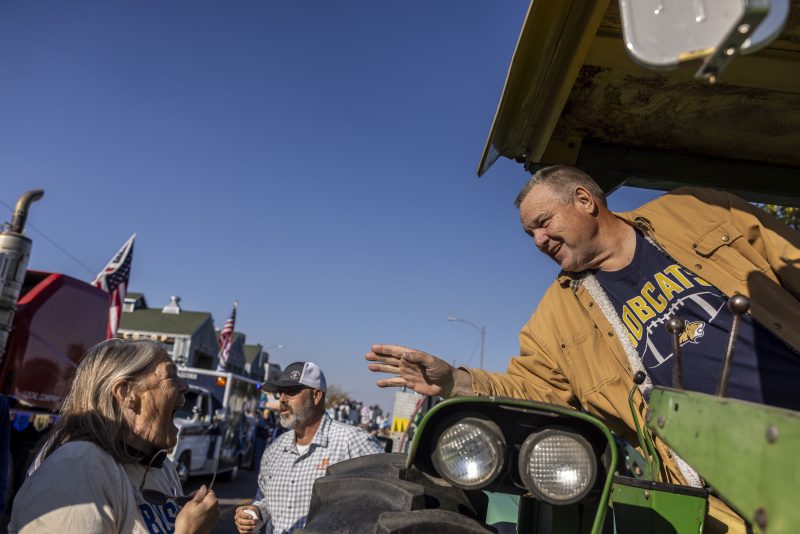
Tester’s Appeal Holds the Key to Senate Control in Evolving Montana
The future of Control of the Senate rests on Jon Tester’s appeal in Montana, where a changing political landscape is shaping the dynamics of the forthcoming election. Tester, a Democrat, is facing a crucial battle to retain his seat against Republican challenger Matt Rosendale. Montana, known for its independent streak and history of split-ticket voting, presents a unique challenge for both candidates, as they navigate a complex political terrain that combines rural conservatism with progressive influences in urban areas.
Tester, a third-term incumbent, has established himself as a formidable presence in the Senate, known for his advocacy on agriculture, veterans’ issues, and healthcare. His folksy demeanor and commitment to Montana’s interests have won him support across party lines, making him a respected figure in a state where personal connections and authenticity matter. Tester’s ability to connect with rural voters, farmers, and ranchers underscores his potential to defy partisan trends and appeal to a broad swath of Montana’s diverse population.
In contrast, Rosendale, the state auditor and former state legislator, is presenting himself as a staunch supporter of President Trump and a champion of conservative values. With endorsements from prominent Republicans and a strong focus on law-and-order issues, Rosendale is seeking to energize the conservative base in Montana and tap into the state’s Republican-leaning tendencies. His aggressive campaign style and alignment with national GOP priorities reflect a strategy aimed at consolidating support from the party faithful and appealing to voters who prioritize issues such as gun rights, immigration, and tax policy.
The changing demographics of Montana, characterized by rapid population growth in urban areas like Bozeman and Missoula, pose a significant challenge for both Tester and Rosendale. As the state becomes more diverse and younger voters exert greater influence, candidates must adapt their messaging and policies to resonate with a new generation of Montanans who are demanding bold action on environmental protection, healthcare access, and economic opportunity. Tester’s emphasis on protecting public lands and expanding rural broadband access, as well as his support for affordable healthcare and student loan relief, reflects an awareness of these evolving priorities and a willingness to engage with the issues that matter most to Montana’s changing electorate.
The outcome of the Senate race in Montana will not only determine the balance of power in Congress but also serve as a bellwether for the shifting political landscape in the West. With Democrats and Republicans locked in a high-stakes battle for control of the Senate, Tester’s ability to hold his ground in a state that values independence and pragmatism could prove decisive in shaping the future direction of national politics. As Montana voters weigh their options and consider the candidates’ competing visions for the state and the country, the stakes have never been higher, and the outcome of this closely watched race will reverberate far beyond the Big Sky Country.
